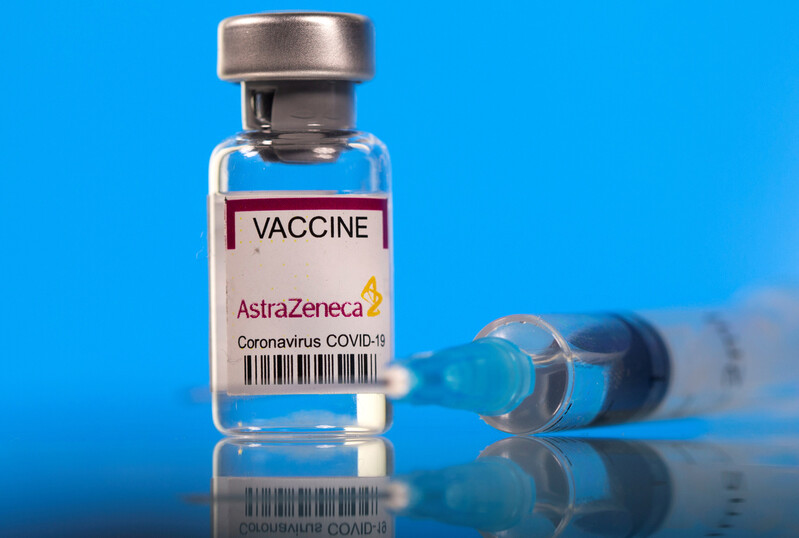AstraZeneca’s COVID-19 vaccine. Reuters Yonhap News
The conflict between the UK and the European Union (EU) over securing the Corona 19 vaccine by British pharmaceutical company AstraZeneca is leading to export restrictions. After Brexit, which was completed at the end of last year, it appears to be the result of vaccine nationalism aimed at maximizing each individual’s profits in the corona19 vaccination. The European Union has rejected the UK’s request to export the AstraZeneca vaccine produced at the Dutch factory, according to news reports from European Union officials on the 21st. The plant, located in Leiden, the Netherlands, is run by the subcontracted pharmaceutical company Harlix, and produces the Corona 19 vaccine that AstraZeneca has decided to supply to the European Union and the UK. Another EU official said, “The UK insists that the drug substance produced in the Dutch Harlix plant should be sent to the country, but that will not be the case.” It would disregard the contract to supply both the European Union and the UK and send the vaccine produced in the Netherlands to the European Union only. The same goes for the UK. Two factories operated by Oxford Biomedica and Cobra Biologics in the UK are contracted to supply vaccines to the European Union as well, but have not yet sent them. An EU official said, “We know that the UK has a supply contract with AstraZeneca and contains a clause that prevents exports until enough vaccines are supplied to the country.” The conflict between the two began from the beginning of this year. In January, British AstraZeneca informed the EU that it would not meet its original vaccine supply target, and the actual supply is expected to be only 30 million batches, less than half of the original Q1 promise. On the other hand, the UK is the country that received the most AstraZeneca vaccine produced in the European Union, receiving 10 million of the total 42 million. Among the factories in Europe and the UK, production disruption was caused at only European factories, and the European Union believes that the British authorities are behind this imbalance. As the UK, which has a much higher vaccination rate, showed a subtle attitude in disseminating the vaccine, the European Union also pulled out an export control card on the 17th. On that day, Urzula von der Leien, head of the European Commission, said, “It is possible to strengthen restrictions on exports of vaccines to countries with higher vaccination rates than the European Union without selling the vaccine to the European Union.” Instructed to do it. It is a clause that allows the waiver of intellectual property rights and patents, and prohibits the export of vaccines outside the country. As of the 19th, the vaccination rate in the UK reached 42%, but the European Union countries are mainly in the 10% range, according to the data of the international statistics website, Our World In Data. Britain’s Defense Minister Ben Wallace said in an interview on the 21st that “the whole world is watching the attitude of the European Commission.” By Choi Hyun-jun, staff reporter
newsletter
Every morning, every Thursday day
A friendly newsletter that will save you from the flood of news.
Meet
